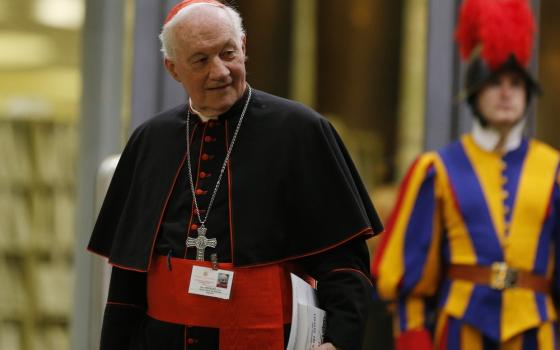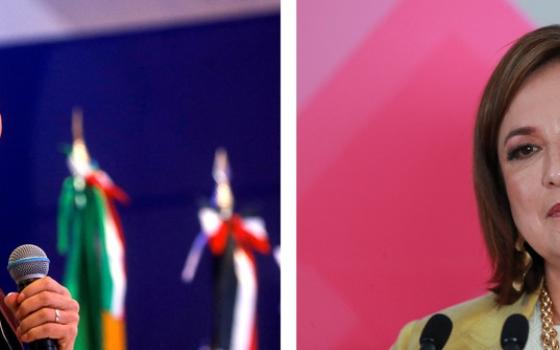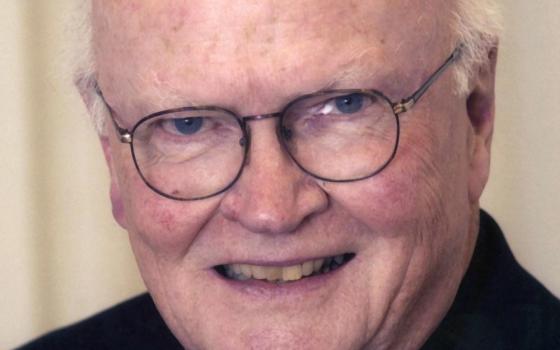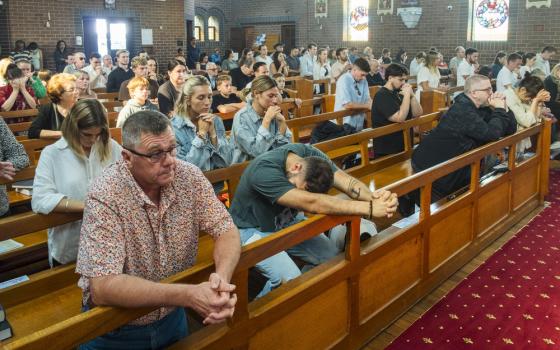Some 144 German Catholic theologians, along with a handful of colleagues from Austria and Switzerland, recently issued a public declaration calling for reforms on matters such as celibacy, women priests and homosexuality. The list of signatories represents roughly one-third of Germany’s professors of Catholic theology.
The letter also touches upon lay participation, styles of leadership, the liturgy, and the legal culture of the church. In some ways, it lays out an agenda for public debate when Benedict XVI visits his homeland in September.
A small drafting committee of theologians put the statement together, with Gerhard Kruip of the University of Mainz acting as the group’s spokesperson. (A layman, Kruip is a specialist in Christian anthropology and social ethics. Having done research in Mexico, he has also served as an advisor on Latin America for the German bishops conference.)
The document was circulated confidentially on the internet, with organizers originally aiming to have fifty signatures prior to publication. For those who read German, the full text can be found in the Feb. 4 edition of the Munich newspaper Süddeutsche Zeitung.
The striking element of the story probably isn’t the letter’s content, but the reaction of the German bishops, which may say something about the temper of the times.
Instead of issuing a swift condemnation, a spokesperson for the bishops actually welcomed the document as a contribution to an “ongoing reform discussion” in the wake of the sexual abuse crisis that hit Germany last year. To be sure, Jesuit Fr. Hans Langendoerfer, on behalf of the bishops, warned that on some issues “the memorandum is in conflict with theological convictions and church regulations that are highly binding,” but said that on other fronts it’s a good starting point for discussion.
That marks a fairly dramatic change from the last time a group of German theologians issued a high-profile public declaration on contentious issues -- the 1989 “Cologne Declaration,” protesting the appointment of arch-conservative Joachim Meisner as the Archbishop of Cologne and decrying a “new Roman centralism.” It was roundly blasted by several German bishops and in the Vatican, where Ratzinger himself suggested that the rolls of paid theologians in Germany may need to be trimmed.
This time around, the tone is far more conciliatory. The bishops have not offered any faux opening on doctrinal issues, but they clearly signaled a desire for dialogue.
The contrast may suggest that the sexual abuse crisis is encouraging a particular style of episcopal leadership -- less defensive in the face of public criticism, if no less orthodox -- especially in the regions most affected by the crisis.
It will be interesting to see if that style holds up as the conversation unfolds, perhaps especially when Benedict comes to town.
* * *
As it happens, one of the German theologians who signed the statement has an American connection. Hille Haker, a moral theologian and social ethicist, currently teaches at Loyola University in Chicago. She was also recently appointed to the European Commission’s Group on Ethics in Science and New Technologies, which is the European equivalent of the U.S. President’s Commission on Bioethics.
I reached Haker by phone in Brussels to discuss the manifesto and its aftermath. The following are excerpts from our conversation.
NCR: What reaction have you picked up?
Haker: I think there’s a lot of support in Germany from ordinary Catholic laypeople. It’s not just the liberals, such as the “We Are Church” group. I’ve been contacted by many people outside the press. I have the impression that many, many people in Germany support the statement.
Have you been surprised by the conciliatory tone of the bishops’ conference?
It’s almost 150 theologians, all full or retired full professors of Catholic theology. The bishops cannot just sideline them or their concerns. It’s certainly a group that has some resonance, some power, in the German public, so if you care for your local church, you can’t just dismiss them. I also think the bishops have been struggling themselves since the sexual abuse crisis broke out, and some would rather see some changes themselves.
My personal view is that there is a rift in the conference, as there sometimes is, between more conservative bishops and more liberal bishops. In Germany, it’s undecided which way things will go. In other conferences, you often have a clearer picture, but in Germany it’s really a mixed bag. Their approach to this document, neither too critical of it nor too moderate, echoes the real situation in the conference.
Can you compare the reaction this time to the 1989 Cologne Declaration?
I’m a former student of Dietmar Mieth, one of the initiators of the Cologne Declaration, and I was in Tübingen when it came out. I just re-read it the other day ... It took up the issue of the election of bishops, Humanae Vitae and respect for conscientious decisions, and other controversial issues in a much more specific way. Its tone was certainly not as moderate as in the new memorandum, even though several issues are still on the table.
Twenty years ago, an important part of the background to the “Cologne Declaration” was the positioning of theologians in the church. Theologians were concerned about the lack of participation, as in the appointment of bishops. Furthermore, the German conference had decided that before a new professor is appointed, the documents for their mandtaum [a license to teach Catholic theology] would be sent to Rome, rather than being handled in the local church by the local bishop. The effects of this became more and more apparent in the different fields of conflict, such as sexual ethics, theology of liberation, or the respect for human rights within the church.
Today, the new statement responds more to the general situation of the church in Germany, not just the particular concerns of theologians. So many people have left the church, and so many are frustrated. For example, we’re in the middle of a process of reorganization of parishes which has only started, and many people are very unhappy about it. In the middle of all that, the news broke last year about the sexual abuse cases in Germany. As a result, the statement reflects widespread perceptions of and in the Catholic church in Germany
What impact do you expect it to have?
The bishops will probably start a new dialogue with the theologians, the outcome of which remains to be seen. The bishops’ conference cannot turn a blind eye to millions of Catholics in their local church who have been waiting so long for a respectful response to their concerns. If they saw that theologians willing to speak up are just dismissed or silenced, this would cause serious problems for the German church as a whole.
As for possible negative consequences, there are several layers. Financially speaking, Germany’s full professors are civil servants, employed by the state and not by the church. That gives us some protection in case the teaching permission is withdrawn, but I simply cannot see an escalation like that happening. Theologians who aren’t yet full professors are more vulnerable because of the mandatum. Yet, as theologians we are obliged to respond to the current crisis and call for those changes that we consider necessary in order to prevent harm. Therefore, the worst case is that nothing happens and necessary changes will again be postponed.
Editor's note: Because of an editing error, this article at first carried a confusing headline. The headline "German theologians, and Ratzinger and Reagan" has been replaced.




